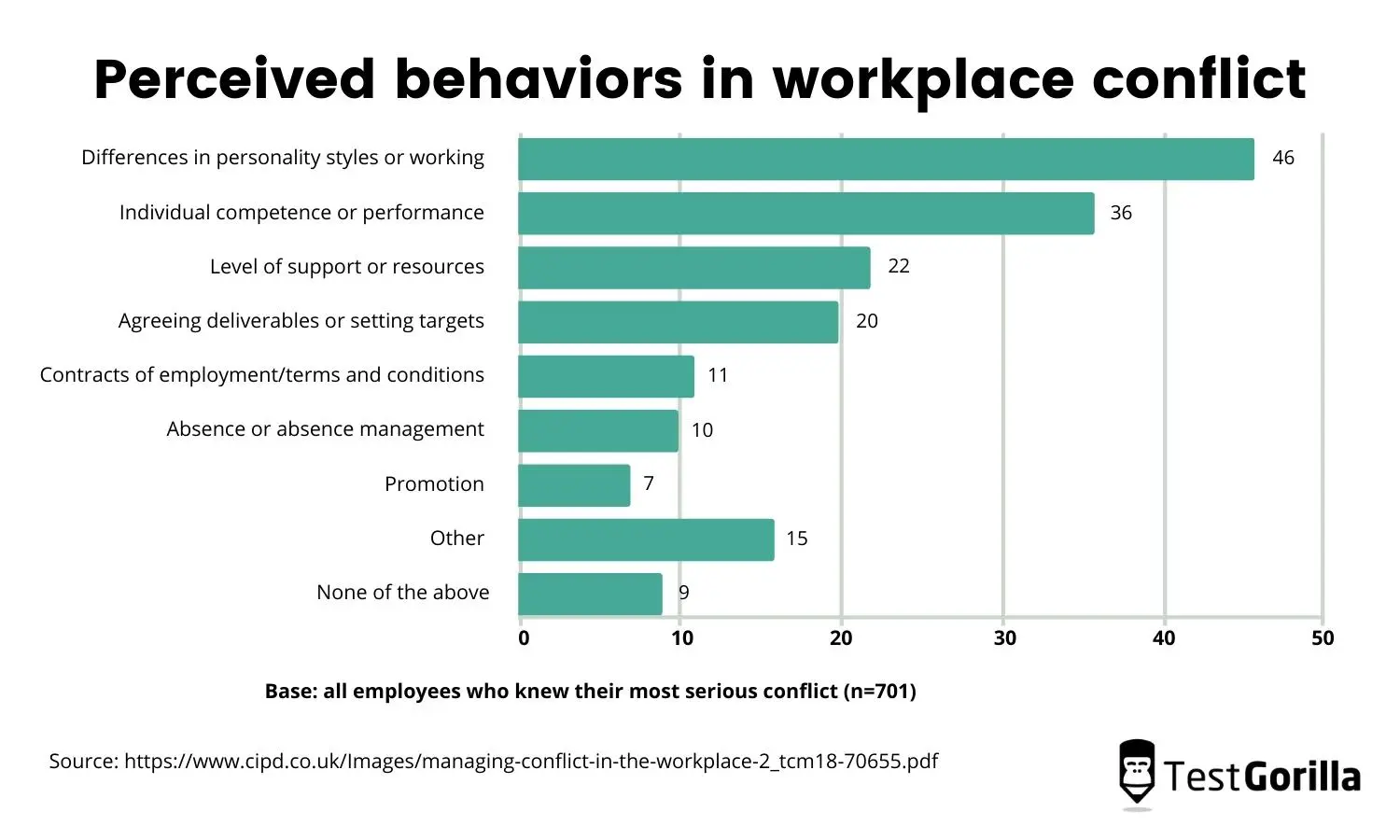HR meetings aren’t fun for anyone.
If you’re having one, it usually means that something’s gone wrong. This isn’t uncommon – 85% of employees experience conflict at work.
If you’re an employee, you might be afraid that something bad is about to happen to you or your job. If you work in the HR department, you might be intimidated at the prospect of having to:
Act in line with legislation
Be professional
Do right by the employee
Protect the company
… all in the same meeting. It’s a lot to handle for everyone involved.
You might think that having a legal representative present for such a high-stakes meeting would ease some of the anxiety, at least if you’re an employee. But is that allowed?
In this article, we’ll talk about when to engage a workplace lawyer and give some tips for HR professionals when managing tricky conversations.
Table of contents
Can I bring a lawyer to an HR meeting?
The short answer to this question is no – at least not for most situations.
In most cases in the US, you do not have the legal right to bring a lawyer to an HR meeting with your employer. That means you don’t get to tell your employer that you’re going to bring an employment lawyer or refuse to attend the meeting without legal representation.
In fact, in a state like Texas, your employer can make you attend a meeting with anyone of their choosing.
Employment law differs slightly between states and in other countries.
Country | Employees’ right to be accompanied |
United Kingdom | You are allowed to bring a colleague or trade union representative. |
New Zealand | You are allowed to bring a “support person” to provide emotional support or legal advice. |
France | Labor law requires employers to hold pre-dismissal meetings at least five days before termination, and the employee is allowed to bring a colleague or external representative. |
However, in most cases in the US, bringing a lawyer to an HR meeting is not a legal right.
This might sound scary, but to be honest, you’ll usually have no need for a lawyer in an HR meeting anyway. Despite their somewhat testy reputation, many HR meetings are about internal employment matters, like:
Requesting your help in setting up a new team or venture
Reviewing your benefits
Organizing training and team building
Even in matters relating to workplace conflict, it’s more likely that your HR rep just wants to help resolve the conflict by facilitating communication between you and the coworker you have a disagreement with.
Unless someone has made a charge of discrimination against you, you aren’t likely in a position where you need a lawyer to defend yourself.
Here are some examples of sources of workplace conflicts that don’t usually require legal representation:
Differences in personality styles or working
Individual competence or performance
Level of support or resources
Disagreements on deliverables or setting targets
Contracts of employment/terms and conditions
Absence or absence management
Promotion
Perceived behaviors in workplace conflict
In most of these workplace conflicts – for example, having personality differences with a colleague – HR may simply want to sit the involved parties down to resolve the issue through discussion and maintain a healthy work environment.
However, there are some cases where you are allowed to bring a lawyer into a meeting with HR. Let’s cover those now.
When can you bring a lawyer to an HR meeting?
You can bring a lawyer to an HR meeting in the United States if you meet the following four criteria:
You are part of a labor union; and
You are meeting with HR because they want to question you as part of an investigation; and
You reasonably believe you may be disciplined because of the investigation; and
You request representation
That’s a lot to unpack, so let’s start with what an investigation involves.
An HR investigation is triggered when an employee makes a formal complaint, for instance, on the grounds of discrimination. In 2021, there were 61,331 workplace discrimination charges in the US, and the US Equal Employment Opportunity Commission recovered more than $400m in damages.
When this happens, HR is legally obligated to appoint an investigator to find out more about the circumstances surrounding the allegations and to do so in a timely and unbiased manner. This investigation might include:
Temporarily suspending the parties involved
Changing work schedules
Interviewing the complainant, the accused, and relevant witnesses
To be allowed to bring a lawyer, you need to have a “reasonable belief” that you will face consequences from the investigation.
This is one of those legal terms that’s somehow both obvious and vague. Any reasonable person – say, a colleague not connected to the situation – would agree that consequences are a likely outcome.
An example might be when two colleagues both make formal complaints about each other:
Employee A: on the grounds of discrimination
Employee B: on the grounds of interpersonal conflict
In this case, if both parties belong to a labor union, they could reasonably request to have legal counsel in their interviews because were either investigation to rule against them, it would be highly likely they would face disciplinary procedures.
That’s a lot clearer, right?
Tips for making employees feel comfortable in an HR meeting
A big part of creating a positive workplace culture is helping employees feel comfortable and assuring them that they’ll be listened to and respected when they meet with HR.
In fact, highly engaged employees are three times more likely to say they feel heard at their workplace (92%) than highly disengaged employees (just 30%).
HR meetings are an important place to engage your staff because they’re where employees – management included – directly communicate their needs to each other.
Here are some tips for how to make employees feel comfortable in different types of HR meetings.
HR meeting topic | Tip for making employees feel comfortable |
Compensation and benefits | Always explain the reasoning behind compensation and benefits , and be specific about the benefits employees will receive. This will help them better understand your decisions and ensure they and the company get the most value from the benefits package. |
Addressing employee mistakes | When dealing with employee mistakes , always start with appreciation. Acknowledge their hard work before making any constructive criticism. |
Resolving a task-based conflict between colleagues | Use non-violent communication techniques to recenter the conversation around the needs and emotions of each party – and away from messages of blame. |
Interviewing the complainant in a discrimination lawsuit | To ensure that the complainant’s privacy is respected, appoint an objective investigator and reserve a room for the whole day of interviews. |
Mediating between members of an argumentative team | Use to help employees self-reflect on what kind of communicators they are – and to help you brainstorm ways you could change up roles or teams to create more cohesion. |
Handle HR meetings with confidence
Whether you’re an employee or an HR rep, one thing is clear: You don’t need to be so scared of HR meetings anymore.
Unless an investigation is underway, employees are often more than equipped to handle HR meetings on their own, and if you’re an HR rep, we have loads of articles to help you tackle daily dilemmas.
Need help with skills testing? Try TestGorilla for free today.
Related posts
Hire the best candidates with TestGorilla
Create pre-employment assessments in minutes to screen candidates, save time, and hire the best talent.
Latest posts
The best advice in pre-employment testing, in your inbox.
No spam. Unsubscribe at any time.

Hire the best. No bias. No stress.
Our screening tests identify the best candidates and make your hiring decisions faster, easier, and bias-free.
Free resources
This checklist covers key features you should look for when choosing a skills testing platform
This resource will help you develop an onboarding checklist for new hires.
How to assess your candidates' attention to detail.
Learn how to get human resources certified through HRCI or SHRM.
Learn how you can improve the level of talent at your company.
Learn how CapitalT reduced hiring bias with online skills assessments.
Learn how to make the resume process more efficient and more effective.
Improve your hiring strategy with these 7 critical recruitment metrics.
Learn how Sukhi decreased time spent reviewing resumes by 83%!
Hire more efficiently with these hacks that 99% of recruiters aren't using.
Make a business case for diversity and inclusion initiatives with this data.


















